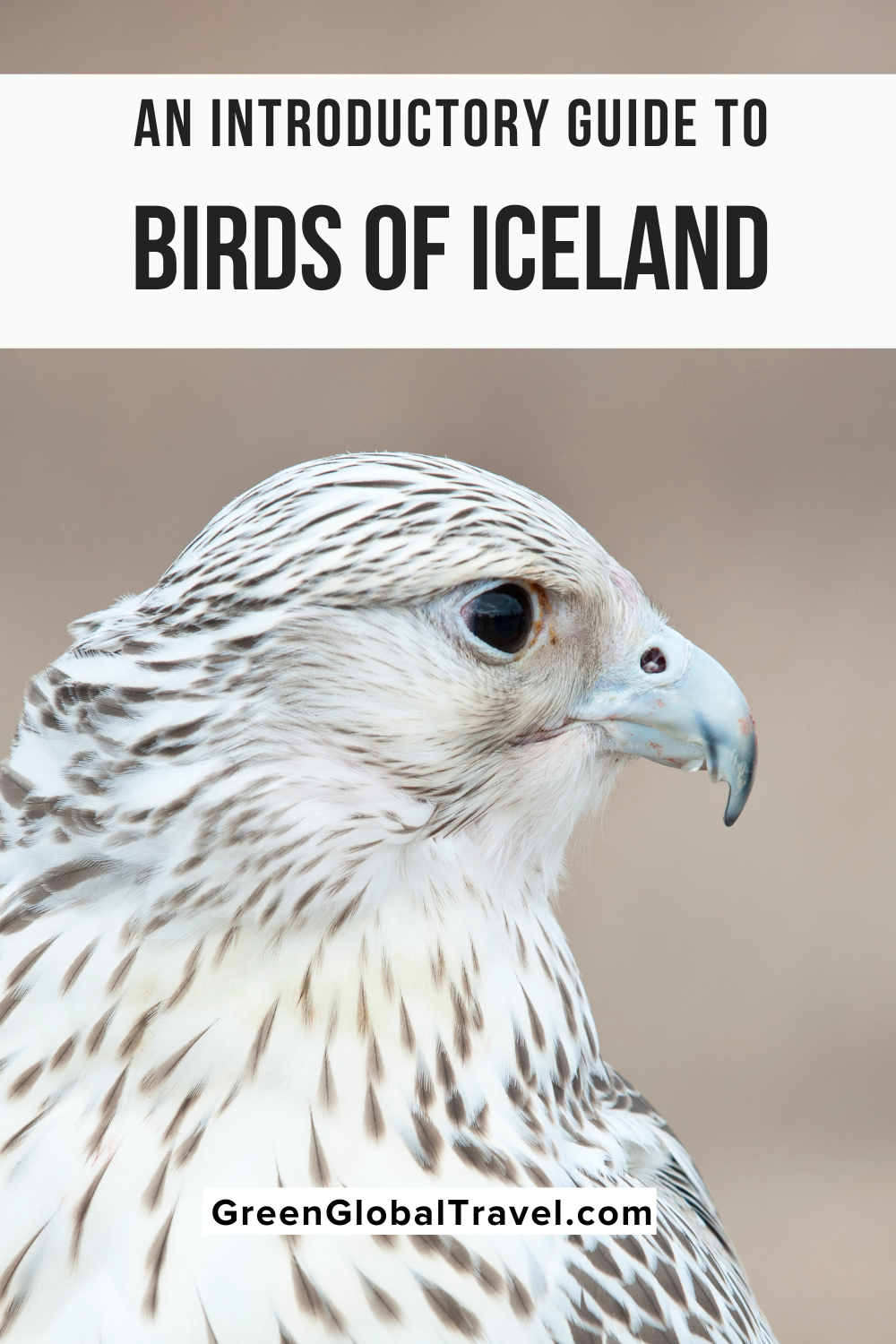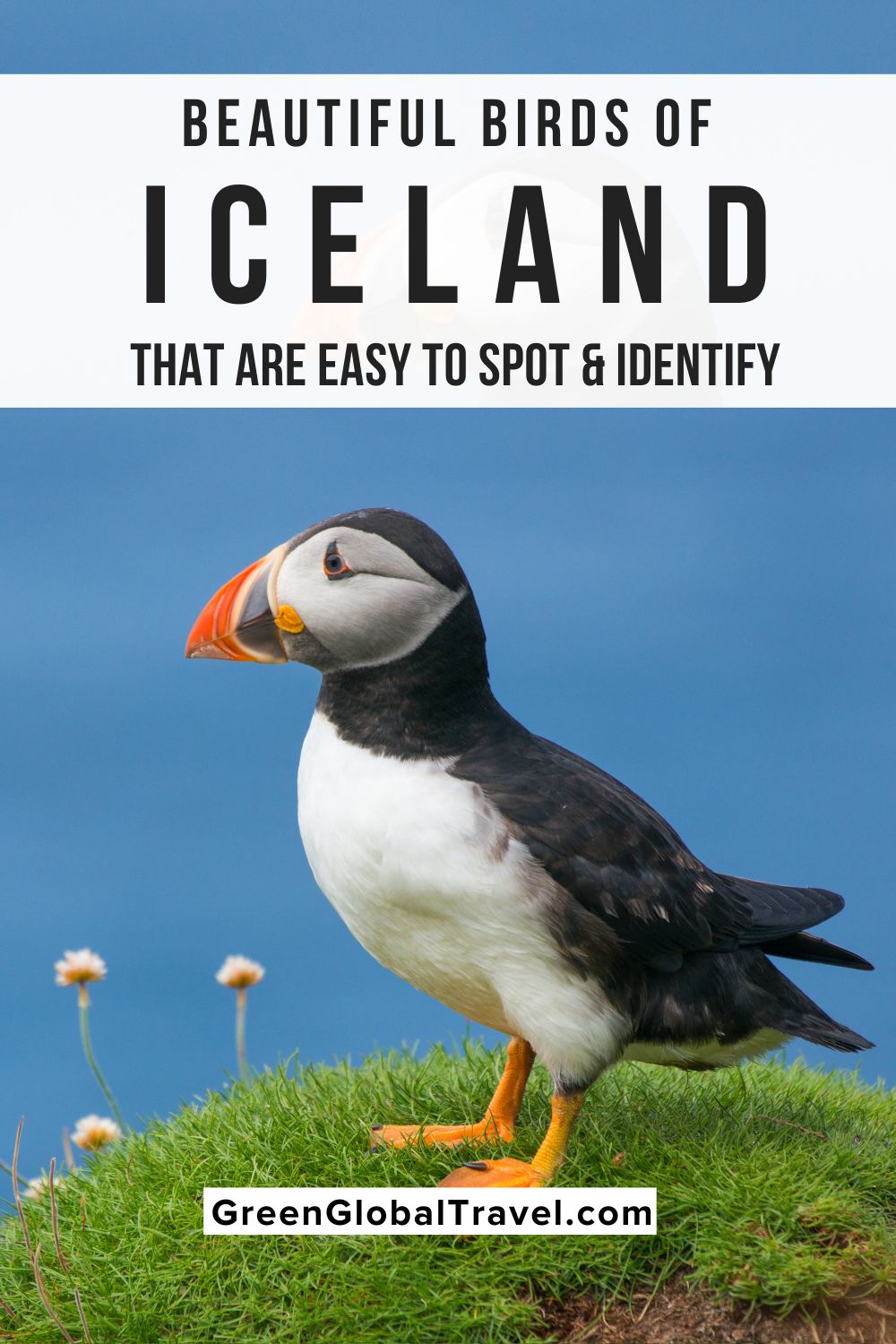Original content owned & copyrighted by Green Global Travel.
With its relatively isolated location in the frigid north Atlantic, Iceland might not be the first country that comes to mind when you think about the world’s best birdwatching destinations.
It’s true that the harsh winters of the 40,000 square mile island ensures that there are few breeding land birds among the country’s resident avian species.
And its remoteness (around 750 miles from Greenland, and 850 miles from the United Kingdom) limits the annual influx of summer migrants.
Yet still the list of the birds of Iceland tops 370 different species, with approximately 85 species that are regularly seen during an Iceland birds’ tours.
Birdwatching in Iceland has become one of the island’s more popular things to do, particularly at the Tjörnin pond in downtown Reykjavík, the nature reserve at Seltjarnarnes, and the entire Lake Mývatn region.
While this brief Icelandic bird guide is by no means complete, it should provide an overview of the major species you might expect to see when birding Iceland.
READ MORE: The Norse Gods: An Intro to Viking Mythology
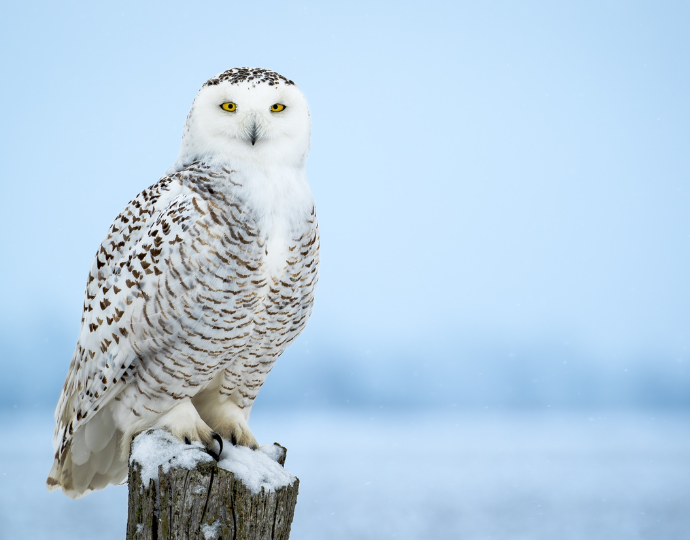
Birds of Iceland Guide
- Puffins
- Auks
- Guillemots
- Ducks
- Geese
- Gyrfalcon
- Loons
- Rock Ptarmigan
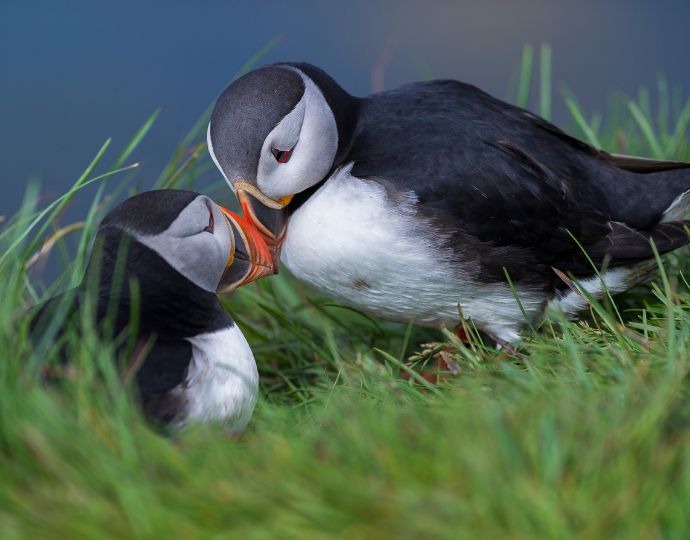
Atlantic Puffins in Iceland
Arguably among the most iconic species of Iceland animals, the Atlantic puffin is a highlight of any Iceland bird tour.
Though these beautiful birds can be seen in other parts of the world, approximately 60% of their total population of around 12 million can be found nesting in huge cliff-top colonies in Iceland from May to September each year.
It’s easy to see why these iconic Arctic animals are so popular. With their penguin-like bodies, awkward waddling gait, and colorful red, yellow, and white bills, the cute “clown of the sea” (a.k.a. “sea parrot”) is adorably unusual.
The fact that Puffins are one of the few endangered species that mate for life and have virtually no fear of humans just makes them all the more endearing.
There are plenty of places to see Atlantic puffins in Iceland. If you’re looking for quantity, start at the cliffs at Látrabjarg (in the Westfjords) or the Westman Islands (a.k.a. Vestmannaeyjar, an archipelago off the country’s southern coast).
You can find them nesting there by the millions, with helping lost puffin chicks trying to reach the water a popular pastime for kids in the summer.
Other good places to see them include the dynamic Dyrhólaey cliffs in the south, the Tjörnes Peninsula in the north, and on whale-watching tours leaving from Reykjavík, Húsavík, and Akureyri.
READ MORE: 70 Cool & Weird Animals Around the World
Other Birds of Iceland
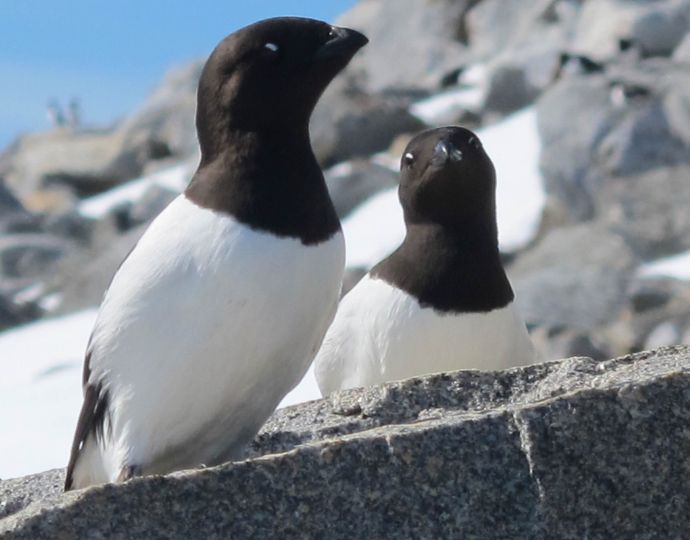
Auks
Auks, auklets, and guillemots are always popular on Iceland birding tours. Though the Atlantic puffin is obviously the Alcidae family’s most beloved member, there are six other surviving species (the great auk went extinct in the mid-1800s) worthy of note.
The aptly-named little auk is just half the size of the Atlantic puffin, but their short, stubby bills and rounded back tails arguably make them equally adorable.
Like its larger cousin the razorbill (a.k.a. lesser auk), they have black and white bodies and spend much of their time in the water, where they feed on fish and crustaceans.
READ MORE: The 10 Best Iceland Waterfalls (Planning the Perfect Road Trip)
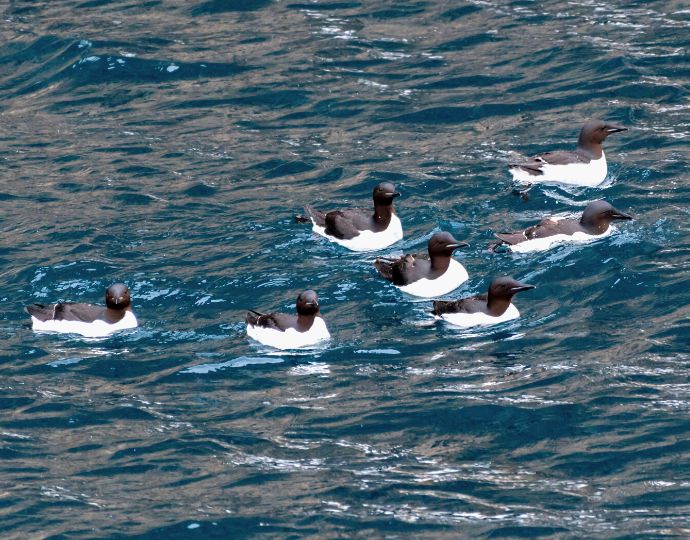
Guillemots
There are three species of guillemots (a.k.a. murres) commonly seen in Iceland. These include the black guillemot, Brunnich’s guillemot (or thick-bulled murre), and the common guillemot (common murre).
All are excellent at diving in search of food in the ocean, with average depths of 100 to 200 feet and a recorded depth of up to 590 feet.
READ MORE: Galapagos Birds: 25 Spectacular Species You Can See on a Galapagos Cruise
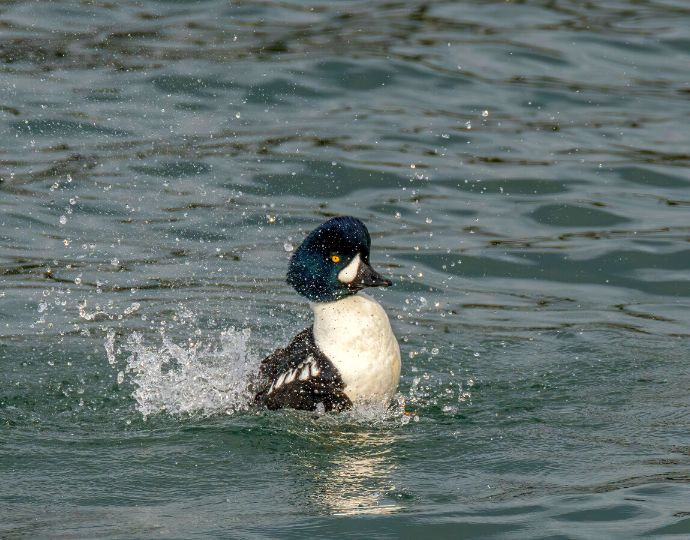
Ducks
There are more than 40 different species of ducks, geese, swans, and eiders in Iceland, but many of those are rare or accidental.
The more commonly seen species of ducks include the beautiful Barrow’s goldeneye, common eider, common merganser, common scoter, Eurasian teal, Eurasian wigeon, gadwall, greater scaup, harlequin duck, long-tailed duck, mallard, northern pintail, red-breasted merganser, and tufted duck.
READ MORE: 25 Beautiful Birds in the Amazon Rainforest
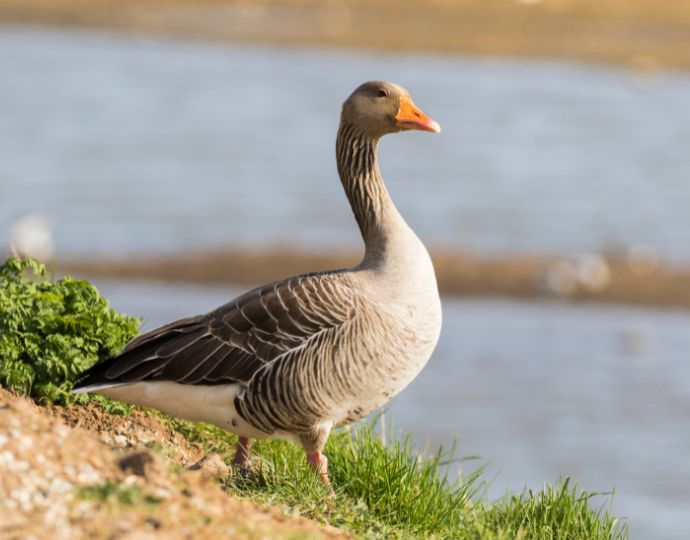
Geese
Geese in Iceland include the barnacle goose, Brent goose, pink-footed goose, greater white-fronted goose, and greylag goose, while the whooper swan (the Eurasian counterpart of the North American trumpeter swan) is the only swan species regularly seen there.
READ MORE: 40 Fascinating Facts about the Hawaiian Goose (a.k.a. Nene Goose)
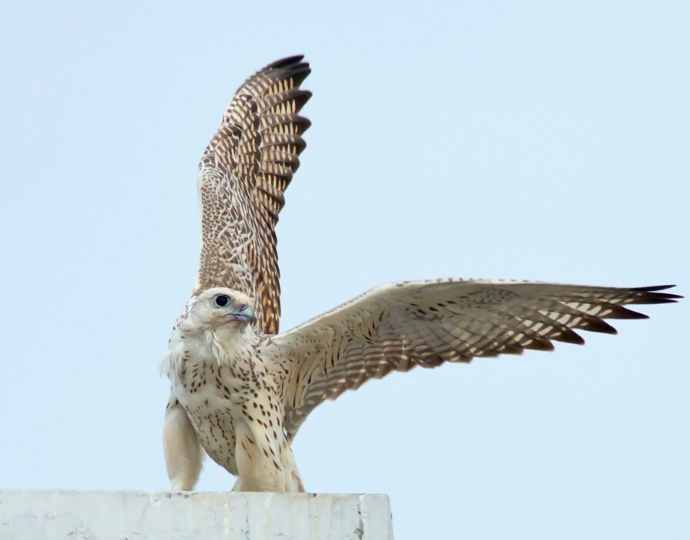
Gyrfalcon
The Atlantic puffin may be the most popular bird of Iceland, but the Gyrfalcon– the largest of the world’s falcon species– is actually Iceland’s national bird.
Breeding on Arctic coasts, islands, and tundra in North American, Europe, and Asia, the gyrfalcon is as big as the largest buzzards.
Females are much larger than males, growing up to 4 pounds and 26 inches long, with wingspans of 5 feet or more. Their colors vary widely, from white and silver to brown and black, with considerable variations in markings as well.
Highly treasured as a hunting bird for centuries, gyrfalcons can often be seen circling the skies before preying on anything from mammals (ranging in size from shrews to marmots) to birds (with ptarmigan a favorite).
READ MORE: Beautiful European Birds: A Guide to 10 Endemic Species
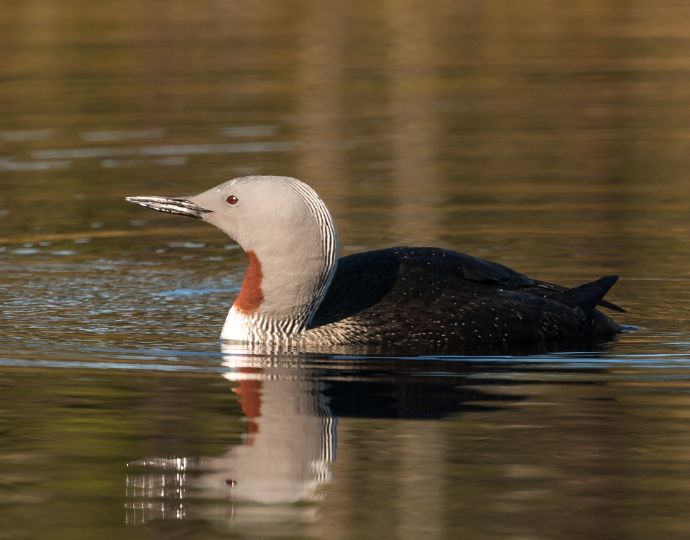
Loons
There are two species of loons, which are also known as divers, found in Iceland.
The red-throated diver is the family’s most widely distributed member, breeding in Arctic regions and wintering in northern coastal waters.
Measuring 22 to 26 inches long and weighing 2.2 to 6 pounds, it’s the smallest, lightest loon in the world.
You can see them in Iceland all year round, but only in the warm breeding season will they have the red throat patch for which they’re named.
The great northern diver, also known as the common loon, is larger (26 to 36 inches long, with wingspan up to 58 inches) and less colorful than its red-throated cousin.
But their white spots and stripes are striking against their black bodies in breeding season, with a subtle blue, green, or purple sheen.
READ MORE: 35 Beautiful Birds of Hawaii and the Polynesian Triangle
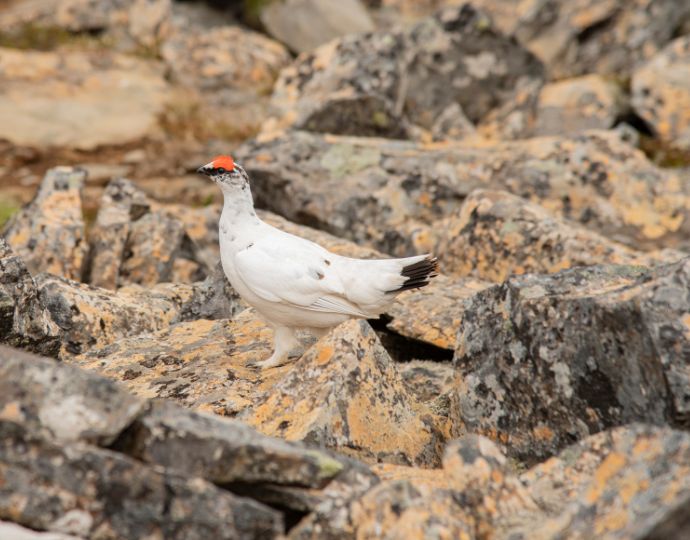
Rock Ptarmigan
This game bird from the grouse family is widely distributed across the Arctic portion of Europe, North America, and Russia.
Alaskan animals are referred to as “bush chicken,” while Asian Animals, Japan specifically, it is known as the “thunder bird.”
Measuring 13 to 14 inches log with a 21 to 24 inch wingspan, the rock ptarmigan’s feathers change with the seasons: They’re brown in spring and summer and white in winter.
This helps provide camouflage as they feed on birch and willow buds, and various seeds, leaves, flowers, and berries, mostly on the ground in barren areas.
Commonly seen in the Skaftafell Nature Reserve and Hrísey Island, rock ptarmigan are also considered a delicacy in Icelandic culture.
Hunting them for personal consumption is only allowed a few days of year, and the bird is often served as the main dish as a Christmas Eve tradition in Iceland. –Bret Love
